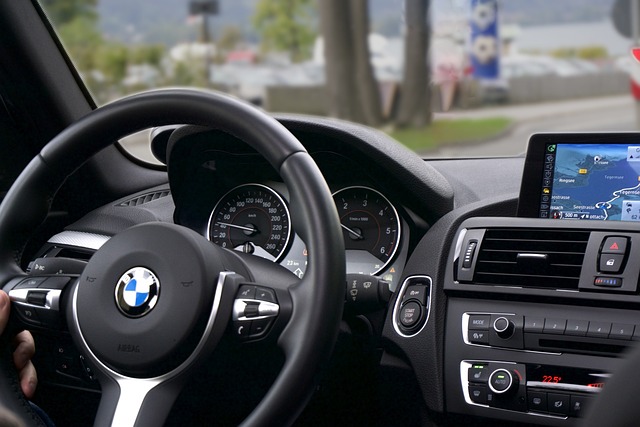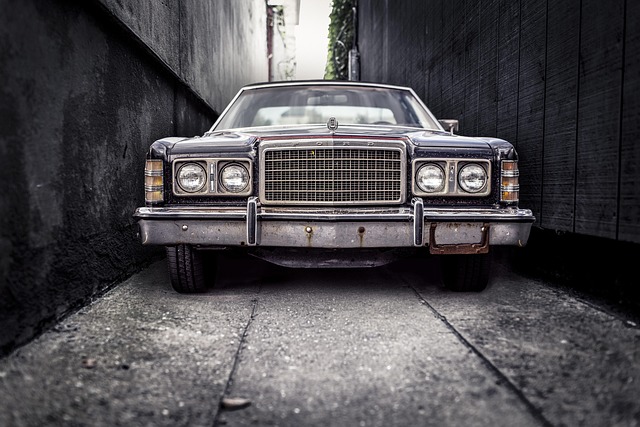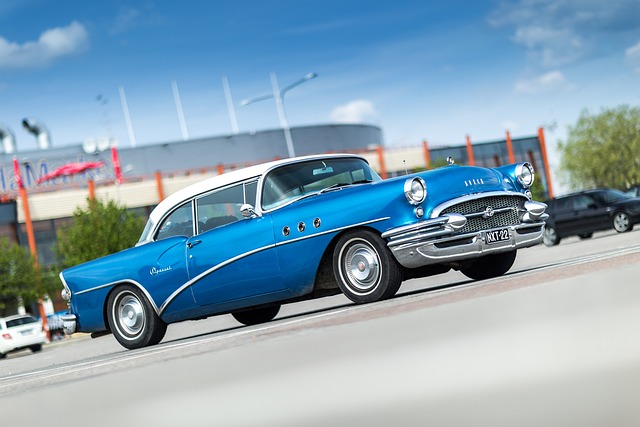Registering your car in California is a straightforward process, but it requires attention to detail. Before you begin, understand the state’s requirements for vehicle registration, including necessary documents and fees. Gather essential paperwork, such as proof of insurance and vehicle identification number (VIN) verification from a DMV VIN verifier. You can choose between visiting a local DMV office or using online services. Ensure your VIN is accurate on all documents to expedite the registration process.
- Understand California Car Registration Requirements
- Gather Necessary Documents for Car Registration
- Visit a California DMV Office or Use Online Services
- Verify Vehicle Identification Number (VIN) Accurately
- Complete and Submit Your Car Registration Application
Understand California Car Registration Requirements

Before registering your car in California, it’s crucial to understand the state’s specific requirements. The California Department of Motor Vehicles (DMV) mandates several key steps for vehicle registration, including a thorough inspection and verification process. One essential tool in this process is a DMV vin verifier, which checks the Vehicle Identification Number (VIN) to ensure the car’s authenticity and history.
Additionally, a mobile vin verifier or vin inspection can provide convenience by allowing you to conduct these checks remotely. This technology plays a vital role in ensuring that only legitimate vehicles are registered, safeguarding consumers from potential fraud. By adhering to these requirements and utilizing available tools like mobile vin verification, you’ll streamline the car registration process in California.
Gather Necessary Documents for Car Registration

Before you start the registration process, it’s crucial to gather all the essential documents. The California Department of Motor Vehicles (DMV) requires a range of information to ensure a smooth and accurate car registration. Key among these is the Vehicle Identification Number (VIN), which acts as a unique fingerprint for your vehicle. A reliable VIN verifier, often available through mobile apps or services, can help you obtain this critical piece of data quickly and accurately.
Other necessary documents include proof of ownership, such as a title certificate, along with valid identification like a driver’s license. If the car is being transferred between individuals, you’ll also need a bill of sale or similar documentation. For convenience, many owners opt for mobile VIN verification services, which can streamline the process by providing instant data access and reducing the need to visit a DMV office.
Visit a California DMV Office or Use Online Services

Visiting a California DMV office or utilizing online services are two primary ways to register your car in the Golden State. If you prefer a more traditional approach, making an appointment at a local Department of Motor Vehicles (DMV) is recommended. There, you can complete registration forms, present necessary documents, and even undergo a vehicle inspection using a DMV vin verifier. This method ensures you receive personalized assistance from DMV representatives who can guide you through the process.
For those seeking convenience and time-saving options, California’s DMV offers online registration services that allow you to start the registration process from the comfort of your home or office. You’ll need to initiate the transaction using a vehicle identification number (VIN) verifier, often available as a mobile vin inspection tool. This digital verification ensures the accuracy of your vehicle’s details before finalizing the registration online.
Verify Vehicle Identification Number (VIN) Accurately

When preparing to register your car in California, one of the crucial steps is ensuring your Vehicle Identification Number (VIN) is accurate. This unique 17-character code is a vital component of your vehicle’s history and identity. To verify it correctly, consider utilizing a mobile vin inspection or mobile vin verification service, which can provide instant and reliable results. These services, often conducted by a professional using specialized equipment, ensure that the VIN on your car matches the one reported by the manufacturer.
An incorrect VIN can lead to registration issues and potential safety hazards, as vehicle history reports, insurance claims, and recall notices are all tied to this number. With a mobile vin verifier, you can get peace of mind knowing that your car’s identification is correct before proceeding with the registration process at the California DMV (Department of Motor Vehicles).
Complete and Submit Your Car Registration Application

After gathering your necessary documents and ensuring your vehicle meets all California registration requirements, it’s time to complete and submit your car registration application. This process typically involves filling out a form provided by the Department of Motor Vehicles (DMV) with accurate information about your vehicle. Be sure to include details like make, model, year, and color, along with identifying information specific to your car, such as its Vehicle Identification Number (VIN). The VIN is crucial for accurate verification and can be easily checked using a DMV VIN verifier.
Once your application is complete, submit it along with the required fees to your local DMV office or, in some cases, through their online portal. If you opt for a mobile vin inspection or use a mobile vin verification service, this process might be slightly different but equally efficient. These services allow for convenient and fast verification of your vehicle’s information, ensuring that your registration application is accurate and complete before submission.
Registering your car in California is a straightforward process that requires understanding the state’s requirements, gathering essential documents, and accurately verifying the Vehicle Identification Number (VIN) using reliable tools like a DMV VIN verifier. By following these steps and utilizing online services, you can efficiently complete the registration, ensuring your vehicle complies with California’s regulations.
